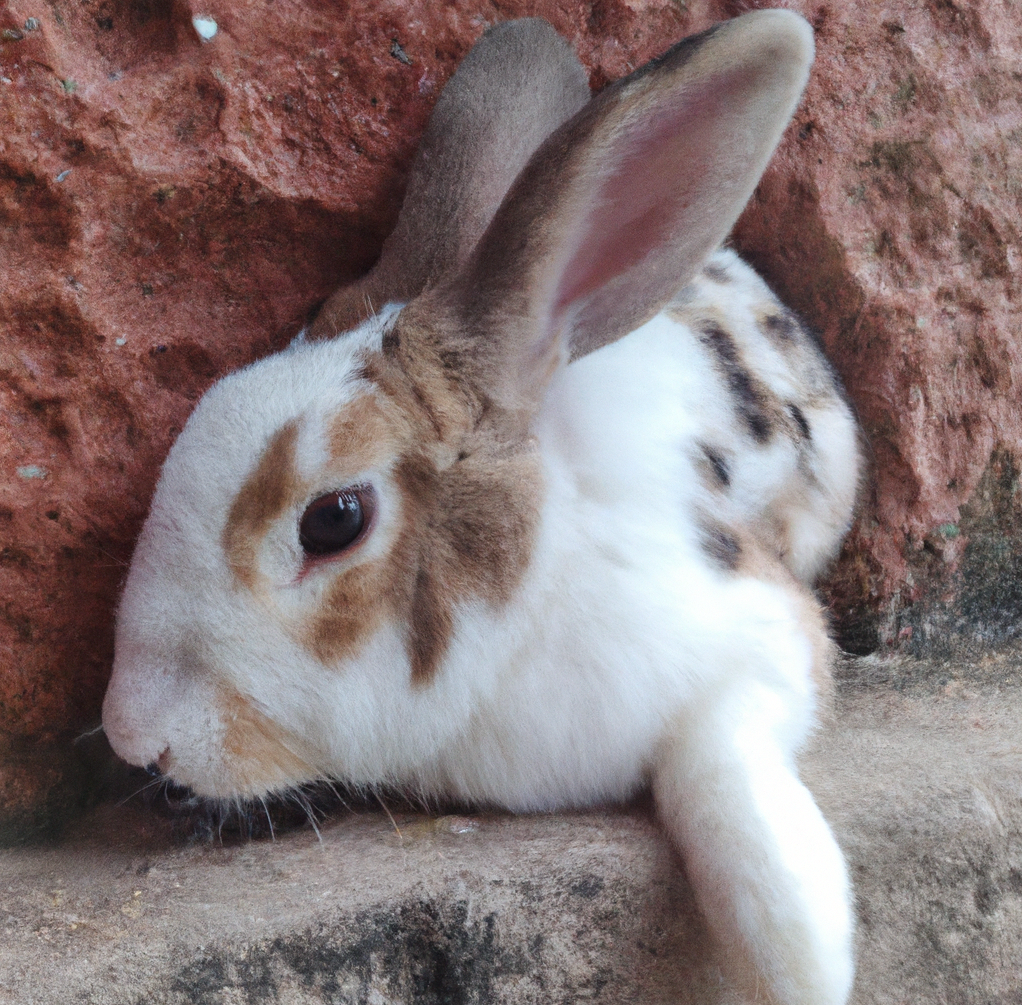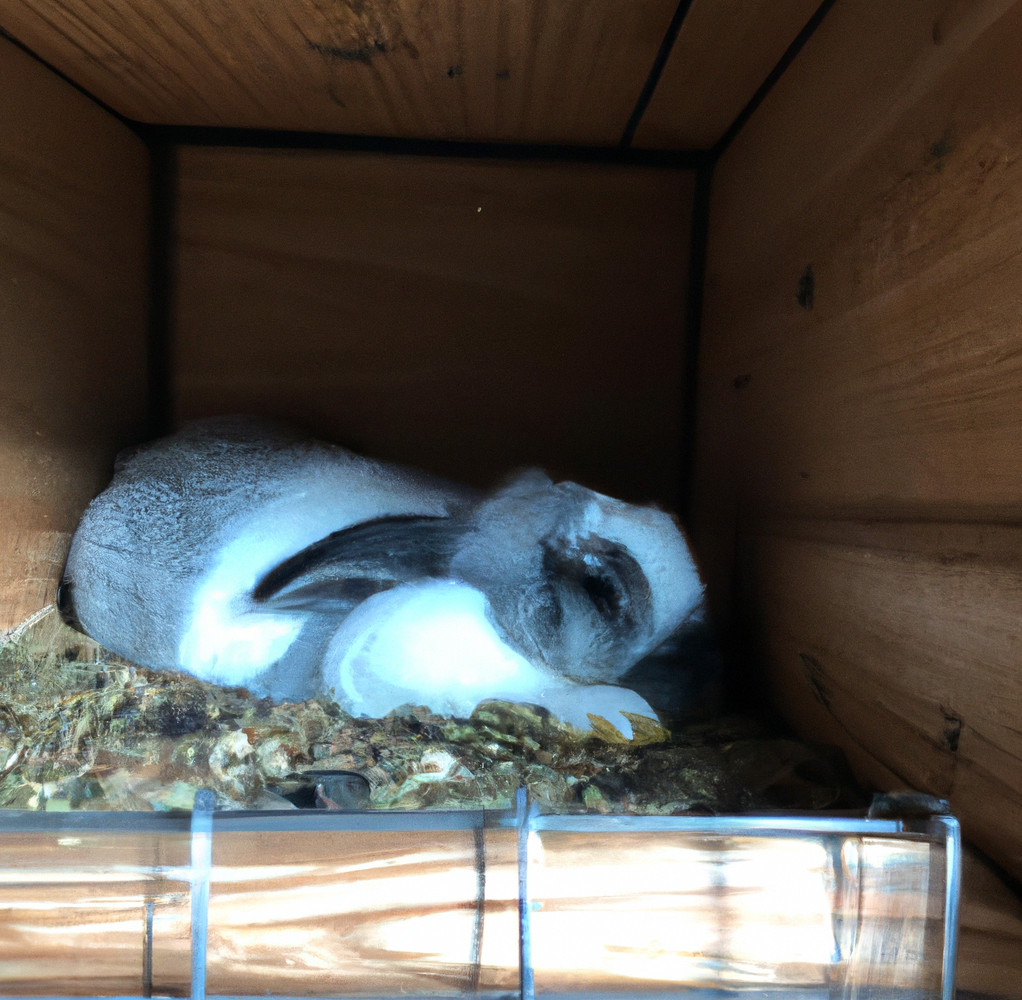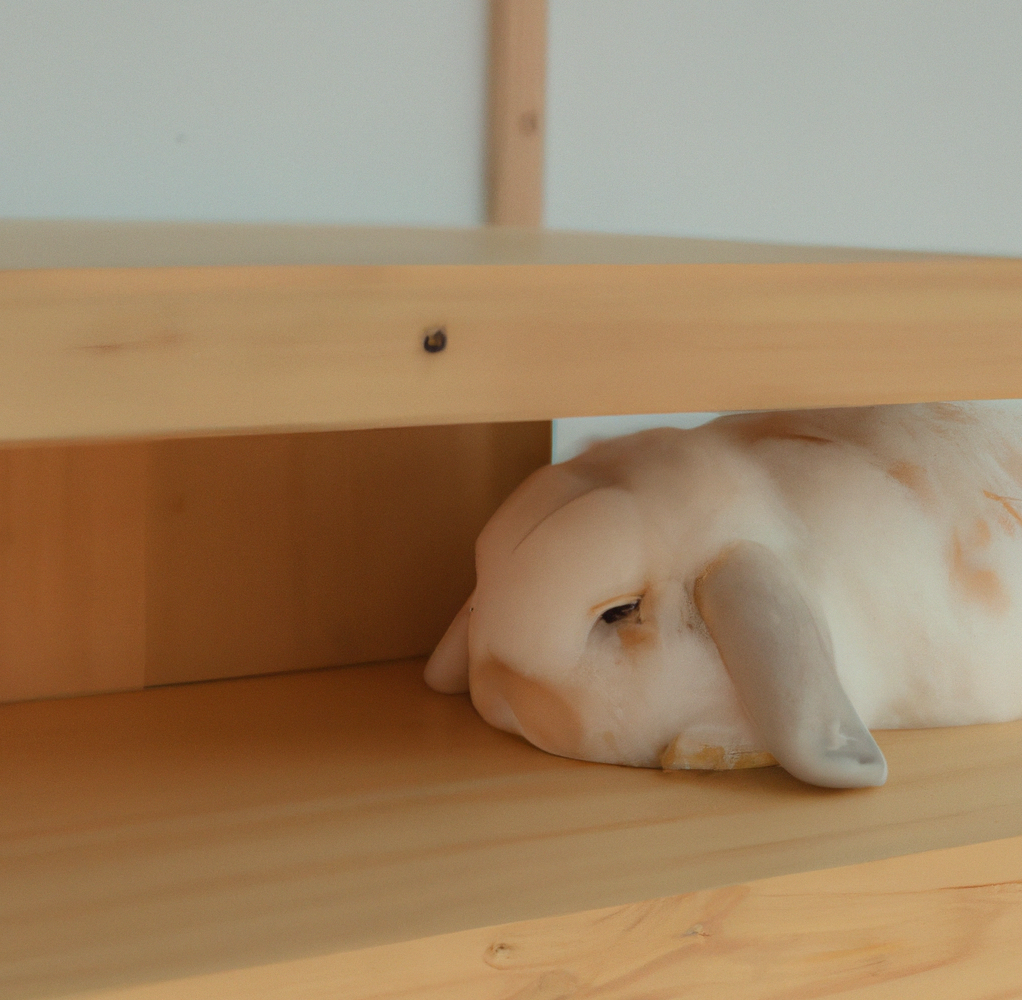Rabbits are intelligent and social animals that require companionship, mental stimulation and plenty of exercise. When these needs are not met, it can lead to a rabbit becoming sad or even depressed. It is important to be able to recognize the signs of sadness or depression in your rabbit, so that you can take steps to address the issue and make your rabbit happier. In this article, we will discuss how to tell if your rabbit is sad or depressed, as well as what you can do to make your rabbit happier.
Identifying Common Signs of Depression in Rabbits
Rabbits are often seen as happy, playful creatures, but they can suffer from depression just like humans. Recognizing the signs of depression in rabbits can be difficult since they don’t show the same outwardly signs of sadness as humans do. However, there are some common signs of depression that can help owners recognize when their rabbits may be feeling down.
One of the most common signs of depression in rabbits is decreased appetite. If your rabbit is eating less than usual or refusing food altogether, it could be a sign of depression. It’s important to note that decreased appetite could also be caused by an underlying medical condition, so it’s important to consult your veterinarian if this symptom is observed.
Another common sign of depression in rabbits is a decrease in activity or energy. If your rabbit is not running around, playing, or exploring their environment as much as they usually do, it could be a sign of depression. Rabbits are naturally active animals and a decrease in activity could be a sign of emotional distress.
A third sign of depression in rabbits is changes in grooming habits. If your rabbit is not grooming themselves as much as they usually do, or if they are excessively grooming certain parts of their body, it could be a sign of depression.
Finally, changes in sleep patterns can be a sign of depression in rabbits. If your rabbit is sleeping more than usual or having difficulty sleeping, it could be a sign of depression.
If you notice any of these signs of depression in your rabbit, it’s important to take them to the vet to make sure there is not an underlying medical condition. In addition, it’s important to provide your rabbit with extra attention and enrichment activities to help boost their mood. If you think your rabbit could be suffering from depression, it’s important to consult your veterinarian as soon as possible.
How to Create a Positive Environment for Your Rabbit
Creating a positive environment for your rabbit is essential for their health and well-being. Rabbits are social animals and need to be part of a supportive, stimulating and safe environment in order for them to thrive. Here are some tips to help create the right environment for your rabbit.
1. Provide ample space. Rabbits need plenty of exercise and space to move around. If you have an indoor rabbit, provide them with a large cage or hutch, as well as a larger playpen so they can move around freely. If you have an outdoor rabbit, make sure their area is secure and large enough for them to explore.
2. Offer enrichment activities. Rabbits are intelligent animals and need mental stimulation in order to stay happy and healthy. Provide them with toys, tunnels and obstacles to explore. Add new toys regularly to keep them engaged.
3. Keep your rabbit’s home clean. Cleanliness is important for your rabbit’s health, so make sure to change the bedding in their cage and hutch regularly.
4. Provide a safe environment. Make sure your rabbit is safe from predators, such as cats and dogs, by keeping them in a secure area. Check the area regularly for any potential hazards, such as sharp objects or toxic plants.
5. Give them plenty of love and attention. Spend time with your rabbit every day and bond with them by offering treats and cuddles.
By following these tips, you can create a positive environment for your rabbit and ensure they are happy, healthy and content.
Understanding the Benefits of Bonding With Your Rabbit
Bonding with your rabbit is an important part of ownership. A bond between a rabbit and its owner is a special relationship that can bring both companions joy and comfort. It can also help to increase the rabbit’s quality of life. Understanding the benefits of bonding with your rabbit can help both you and your furry friend to develop a strong and loving bond.
One of the main benefits of bonding with your rabbit is that it can help to reduce their stress levels. Rabbits are prey animals and often feel scared and stressed when they are in unfamiliar environments. Bonding with your rabbit helps to reduce their fear and stress and makes them feel more secure in their home. When a rabbit trusts their owner, they are more likely to feel safe and relaxed in their environment. This can lead to fewer behavioral issues and improved overall health.
Bonding with your rabbit can also help to strengthen the relationship between you and your companion. A bond with your rabbit will help them to recognize you as their trusted friend and companion. This can help to create an enjoyable and satisfying relationship. In addition, bonding with your rabbit can help them to trust your commands and better understand your expectations. As a result, your rabbit will be more likely to listen to and follow your instructions, making them easier to train.
Finally, bonding with your rabbit can help to increase their quality of life. Rabbits are social animals and need human companionship to be happy and healthy. When a rabbit bonds with their owner, they will be more comfortable and content in their home. This can lead to an increase in their activity and curiosity, which can provide them with more enrichment and enjoyment.
Bonding with your rabbit is an important part of ownership and can bring both you and your companion joy and satisfaction. Understanding the benefits of bonding with your rabbit can help to create a strong and loving bond between you and your furry friend.
Common Causes of Stress in Rabbits

There are several potential causes of stress in rabbits. These include abrupt changes in environment, inadequate housing, social isolation, excessive handling, and loud noises.
Environmental changes, such as moving the rabbit to a new home or rearranging their environment, can cause a great deal of stress. When rabbits are moved to a new home, they must get used to the new smells, sights, and sounds. Moving to a new home can also be disruptive to their routine.
Inadequate housing, such as a cage that is too small, can result in stress for a rabbit. Rabbits need plenty of space to move around and explore. If a cage is too small, the rabbit may become anxious and stressed.
Social isolation is also a common cause of stress in rabbits. Rabbits are social animals, and they need companionship from other rabbits or humans. If a rabbit is kept alone for too long, it can become stressed.
Excessive handling can also cause stress in rabbits. While it is important to handle your rabbit to keep them tame, too much handling can be overwhelming for them. If your rabbit seems uncomfortable or anxious when being held, it is best to limit handling.
Finally, loud noises can be a source of stress for rabbits. Things like vacuum cleaners, loud music, or shouting can startle or frighten them. If possible, try to keep the noise level in your home low and avoid startling your rabbit.
How to Know if Your Rabbit is Experiencing Pain or Suffering
Rabbits are social animals and can be quite sensitive to pain and suffering. Therefore, it is important to be aware of the signs that your rabbit may be in distress.
The most common signs of pain or suffering in a rabbit include: decreased appetite, changes in litter box habits, changes in behavior, changes in body language, and changes in grooming habits.
First, a decrease in appetite is one of the most common signs of pain or suffering in a rabbit. Your rabbit may stop eating altogether or may only eat less than usual. If your rabbit stops eating, you should take them to the vet as soon as possible to rule out any potential medical issues.
Second, changes in litter box habits can be an indication of pain or suffering. If your rabbit begins to urinate or defecate outside of the litter box, this may signify that they are in pain or uncomfortable.
Third, changes in behavior can be another sign of pain or suffering. Your rabbit may become more aggressive or lethargic than usual. If your rabbit begins to act out of character, it may be a sign that something is not quite right.
Fourth, changes in body language can also be an indication of pain or suffering. If your rabbit begins to hunch over or move more slowly, this may be a sign of pain or discomfort. Additionally, if your rabbit begins to hide more than usual, this could be an indication of pain.
Finally, changes in grooming habits can also be a sign of pain or suffering. If your rabbit stops grooming themselves, this could be a sign that they are in pain or uncomfortable.
It is important to pay close attention to your rabbit’s behavior and any changes they may be exhibiting. If you believe your rabbit is in pain or suffering, it is important to take them to the vet as soon as possible.
The Importance of Nutritional Balance for Rabbits to Avoid Depression

Depression is a serious psychological disorder that can negatively affect the quality of life for humans and animals alike. As with humans, depression can be triggered in rabbits by multiple factors, including a lack of social interaction, changes in environment, and even a lack of nutritional balance. To ensure that rabbits remain healthy and happy, it is important to provide them with a balanced diet and proper nutrition.
Rabbits are herbivores and their diet should consist of fresh hay, fresh vegetables, and a small amount of pellets. Hay is an essential part of a rabbit’s diet as it contains important vitamins and minerals. It also provides a source of roughage, which is necessary for proper digestion. Fresh vegetables should also be offered, as they provide additional nutrients and vitamins, as well as a variety of tastes and textures. A small amount of pellets can also be offered, but should not make up the majority of their diet.
In addition to providing a balanced diet, it is also important to ensure that rabbits have access to fresh, clean water at all times. Water helps to keep rabbits hydrated and is important for digestion. It is also important to provide rabbits with ample exercise. Exercise helps to stimulate their mind and body, improving their overall health and helping to prevent depression.
Finally, rabbits need to feel safe and secure in their environment. This means providing them with a comfortable and spacious living area that is free from predators, drafts, and other environmental hazards. It is also important to provide them with plenty of toys and activities to keep them mentally and physically stimulated.
By providing rabbits with a balanced diet, access to fresh water, and a safe and secure living environment, owners can help ensure that their rabbits remain healthy and happy. This in turn can help to prevent depression and ensure that rabbits lead full and happy lives.
Conclusion
It is important to look out for signs of sadness or depression in your rabbit and seek professional help if necessary. Often, providing your rabbit with a stimulating environment, plenty of social interaction, and enough space can help him to stay happy and healthy. If your rabbit is showing signs of sadness or depression, pay close attention to his behavior and work to create the best environment possible for him.

